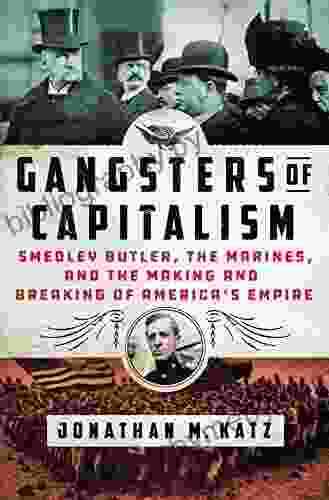How Your Nation's IQ Matters So Much More Than Your Own

A new book argues that the average IQ of a nation is a much better predictor of its economic success than the IQ of its individual citizens.
4.2 out of 5
| Language | : | English |
| Text-to-Speech | : | Enabled |
| Enhanced typesetting | : | Enabled |
| Word Wise | : | Enabled |
| File size | : | 1285 KB |
| Screen Reader | : | Supported |
| Print length | : | 224 pages |
The book, titled "The Intelligence of Nations," is written by Richard Lynn and Tatu Vanhanen. Lynn is a professor of psychology at the University of Ulster in Northern Ireland, and Vanhanen is a professor of political science at the University of Helsinki in Finland.
Lynn and Vanhanen argue that IQ is a key factor in economic development because it is a measure of a person's cognitive abilities, such as problem-solving, reasoning, and memory. These abilities are essential for success in school, work, and life in general.
The authors also argue that IQ is a heritable trait, meaning that it is passed down from parents to children. This means that the average IQ of a nation is largely determined by the genetic makeup of its population.
Lynn and Vanhanen's research has found that there is a strong correlation between the average IQ of a nation and its economic development. For example, countries with high average IQs tend to have higher levels of economic growth, productivity, and innovation.
The authors also found that the average IQ of a nation is a better predictor of its economic success than other factors, such as the level of education or the amount of natural resources.
Lynn and Vanhanen's research has been controversial, but it has sparked a renewed debate about the role of IQ in economic development. Some critics have argued that the authors' research is flawed, and that IQ is not as important as other factors, such as culture and institutions.
However, other researchers have supported Lynn and Vanhanen's findings. A study published in the journal "Intelligence" found that the average IQ of a nation is a significant predictor of its economic growth, even after controlling for other factors.
The debate over the role of IQ in economic development is likely to continue. However, Lynn and Vanhanen's research has provided strong evidence that IQ is a key factor in a nation's economic success.
Implications for Policy
Lynn and Vanhanen's research has implications for policy. If IQ is a key factor in economic development, then governments should take steps to improve the average IQ of their populations.
One way to do this is to invest in education. Education can help to improve cognitive abilities, and it can also lead to higher levels of economic growth. Another way to improve the average IQ of a population is to encourage immigration from countries with high average IQs.
However, it is important to note that IQ is not the only factor that contributes to economic success. Other factors, such as culture and institutions, also play a role.
Therefore, governments should not focus exclusively on IQ when developing policies to promote economic growth. However, IQ is a key factor that should be taken into account.
Lynn and Vanhanen's research has shown that the average IQ of a nation is a much better predictor of its economic success than the IQ of its individual citizens. This has implications for policy, as governments should take steps to improve the average IQ of their populations.
4.2 out of 5
| Language | : | English |
| Text-to-Speech | : | Enabled |
| Enhanced typesetting | : | Enabled |
| Word Wise | : | Enabled |
| File size | : | 1285 KB |
| Screen Reader | : | Supported |
| Print length | : | 224 pages |
Do you want to contribute by writing guest posts on this blog?
Please contact us and send us a resume of previous articles that you have written.
 Book
Book Novel
Novel Page
Page Chapter
Chapter Text
Text Story
Story Genre
Genre Reader
Reader Library
Library Paperback
Paperback E-book
E-book Magazine
Magazine Newspaper
Newspaper Paragraph
Paragraph Sentence
Sentence Bookmark
Bookmark Shelf
Shelf Glossary
Glossary Bibliography
Bibliography Foreword
Foreword Preface
Preface Synopsis
Synopsis Annotation
Annotation Footnote
Footnote Manuscript
Manuscript Scroll
Scroll Codex
Codex Tome
Tome Bestseller
Bestseller Classics
Classics Library card
Library card Narrative
Narrative Biography
Biography Autobiography
Autobiography Memoir
Memoir Reference
Reference Encyclopedia
Encyclopedia Gil Scott Heron
Gil Scott Heron Joseph Fleming
Joseph Fleming Lila Shanti
Lila Shanti George Seldes
George Seldes Roslynn D Haynes
Roslynn D Haynes Jennifer Lilya
Jennifer Lilya Funso Aiyejina
Funso Aiyejina Richard Due
Richard Due Nelson Demille
Nelson Demille Geert Hofstede
Geert Hofstede Gail Dexter Lord
Gail Dexter Lord Michael Kiel
Michael Kiel Mike Spohr
Mike Spohr Garry Kasparov
Garry Kasparov Tiffany Wasson
Tiffany Wasson Gawain Barker
Gawain Barker Fx Holden
Fx Holden Gertrude Landa
Gertrude Landa Toby Hemenway
Toby Hemenway Wayne Mullins
Wayne Mullins
Light bulbAdvertise smarter! Our strategic ad space ensures maximum exposure. Reserve your spot today!

 Fernando BellThe Beginner-Friendly Practical Guide to Understanding Taxes for Your Startup
Fernando BellThe Beginner-Friendly Practical Guide to Understanding Taxes for Your Startup
 Percy Bysshe ShelleyUnleash Your Inner Magician: Master Over 100 Mind-Boggling Effects with 500...
Percy Bysshe ShelleyUnleash Your Inner Magician: Master Over 100 Mind-Boggling Effects with 500... Yasushi InoueFollow ·14k
Yasushi InoueFollow ·14k Henry GreenFollow ·6.8k
Henry GreenFollow ·6.8k Anthony BurgessFollow ·8.4k
Anthony BurgessFollow ·8.4k Richard WrightFollow ·19.3k
Richard WrightFollow ·19.3k Fernando PessoaFollow ·13.6k
Fernando PessoaFollow ·13.6k Kazuo IshiguroFollow ·11.5k
Kazuo IshiguroFollow ·11.5k Bo CoxFollow ·13.3k
Bo CoxFollow ·13.3k Donald WardFollow ·4.6k
Donald WardFollow ·4.6k

 Brian West
Brian WestSmedley Butler: The Marines and the Making and Breaking...
: A Marine's...

 Gabriel Garcia Marquez
Gabriel Garcia MarquezIschia, Capri, Sorrento, Positano, And Amalfi: An...
Explore the...

 Felix Carter
Felix CarterAdorn Your Little Princess with Fleur Ange's Exquisite...
Welcome to the enchanting...

 Kelly Blair
Kelly BlairUnveiling the Secrets of the Historical Way and Fishermen...
Step into the pages...

 Angelo Ward
Angelo WardKnit the Cutest Thumbless Mittens for Your Little One:...
Prepare to be...
4.2 out of 5
| Language | : | English |
| Text-to-Speech | : | Enabled |
| Enhanced typesetting | : | Enabled |
| Word Wise | : | Enabled |
| File size | : | 1285 KB |
| Screen Reader | : | Supported |
| Print length | : | 224 pages |










